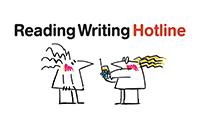13 Jun An inclusive approach to literacy and numeracy in Melbourne

Card game developed by women on community correctional orders
Another focus of governments is how to reach the many Australians with literacy and numeracy gaps who, due to a range of barriers, don’t access courses. We need to explore different approaches to engage these potential learners. The Hotline caught up with Jesuit Social Services in Melbourne in April and heard about one such approach outlined below.
Jesuit Social Services provide a wide range of responsive and place-based outreach vocational education and training programs for people who face multiple barriers. These include homelessness, poverty, lack of access to technology, and language, literacy and numeracy gaps.
Key factors in the success of their provision are:
- using a diversity of curriculum including pre-accredited programs
- building confidence and pathways through small progressions
- one on one with the trainer
- embedding literacy and numeracy into other contexts
- learning in locations where students feel comfortable
- incorporating life skills.
An example of their approach was a project with women on community correctional orders. The project produced a set of colourful A-Z flash cards promoting healthy eating. The women drew the images and helped in the design and wording. Literacy was integrated into the project. The cards were donated to primary schools and used as a creative and fun tool to improve children’s nutrition and their language and literacy skills. The completion of such a well-received resource was a source of achievement for the women involved and a boost to continue with their learning.


